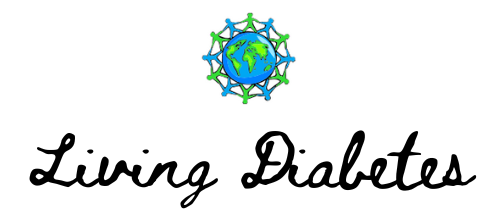Gestational diabetes is a type of diabetes that affects pregnant women. It is a condition where the body is unable to produce enough insulin to handle the increased demand for insulin during pregnancy. This can lead to elevated levels of glucose in the blood, which can harm both the mother and the baby. [1]
Symptoms of Gestational Diabetes
The symptoms of gestational diabetes are similar to those of type 2 diabetes and often go unnoticed. Some common symptoms include: [2]
- Increased thirst
- Frequent urination
- Blurred vision
- Fatigue
- Nausea
- Slow-healing wounds or infections
Causes of Gestational Diabetes
The exact cause of gestational diabetes is unknown, but it is believed to be related to hormonal changes during pregnancy. Other factors that may increase the risk of gestational diabetes include: [3]
- Previous history of gestational diabetes or type 2 diabetes
- Overweight or obesity
- Family history of diabetes
- Age over 25 years old
- Polycystic ovary syndrome (PCOS)
- High blood pressure
Diagnosis of Gestational Diabetes
Gestational diabetes is typically diagnosed during the second trimester of pregnancy through a simple glucose tolerance test. During this test, the pregnant woman drinks a sweet solution and has her blood sugar levels checked at various intervals over a period of 2 hours. [1]
Complications of Gestational Diabetes
Untreated, gestational diabetes can lead to serious complications for both the mother and the baby. Some potential complications include: [4]
- Pre-eclampsia
- Increased risk of type 2 diabetes later in life
- Large birth weight, leading to difficulties during delivery
- Increased risk of stillbirth
- Increased risk of birth defects
Treatment of Gestational Diabetes
Gestational diabetes can be treated and managed through a combination of diet, exercise, and medication. The treatment plan will depend on the individual case and the severity of diabetes. [1]
Diet and Exercise
A healthy diet and regular exercise are important components of gestational diabetes treatment. Women with gestational diabetes should aim to eat a balanced diet with plenty of fiber, whole grains, and lean protein. They should also limit their intake of sugar, fat, and carbohydrates. Regular exercises, such as walking or swimming, can help control blood sugar levels and improve overall health. [1]
Medication
In some cases, medication may be necessary to control gestational diabetes. The most commonly used medications for gestational diabetes are insulin injections and oral glucose-lowering drugs. [1]
Preventing Gestational Diabetes
Gestational diabetes can often be prevented through lifestyle changes and proper management of risk factors. Some tips for preventing gestational diabetes include: [3]
- Maintaining a healthy weight before and during pregnancy
- Eating a balanced diet
- Engaging in regular physical activity
- Managing stress
- Controlling high blood pressure
- Monitoring blood sugar levels regularly
Conclusion
Gestational diabetes is a serious condition that requires proper treatment and management to ensure the health and well-being of both the mother and the baby. By understanding the causes, symptoms, and complications of gestational diabetes, women can take steps to prevent and manage the condition. With the right support and care, gestational diabetes can be effectively managed and treated to ensure a healthy pregnancy and delivery.
References and Further Reading
- Centers for Disease Control and Prevention. (2024, May 15). Gestational Diabetes.
- Mayo Clinic. (n.d.). Gestational diabetes.
- National Institute of Diabetes and Digestive and Kidney Diseases. (n.d.). Symptoms & Causes of Gestational Diabetes.
- Johns Hopkins Medicine. (n.d.). Gestational Diabetes Mellitus (GDM).


1 thought on “Understanding Gestational Diabetes”